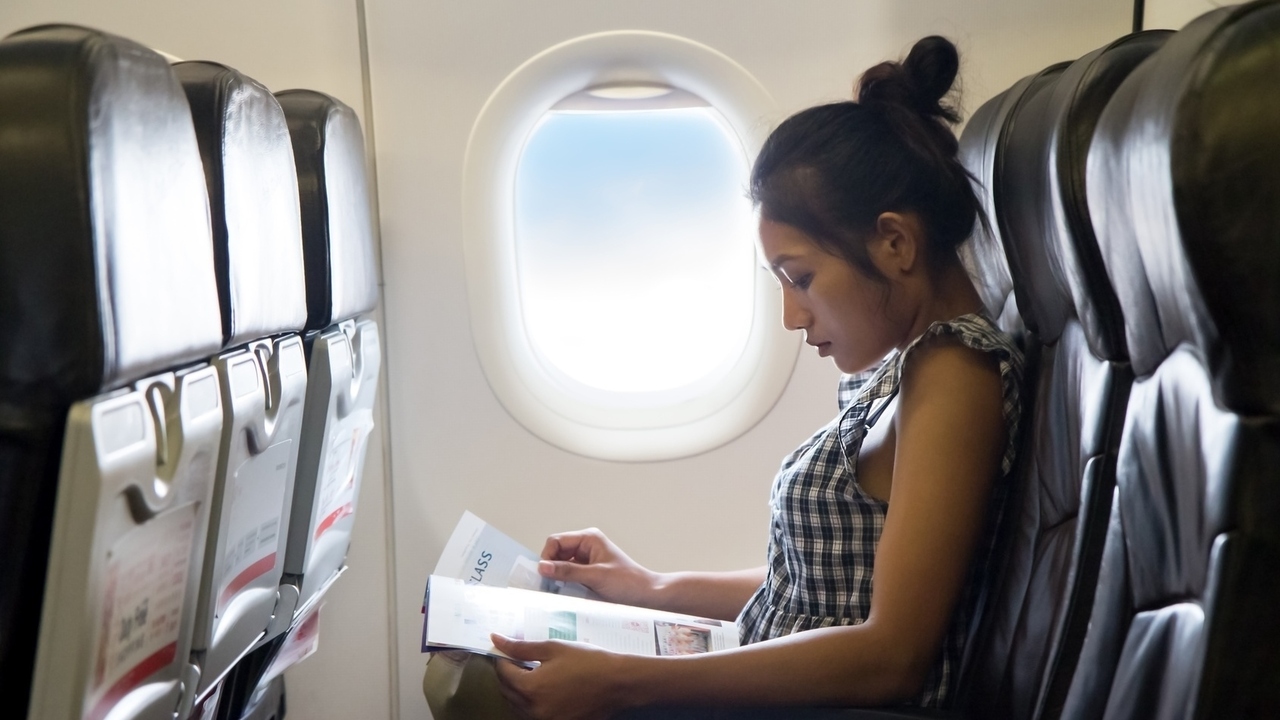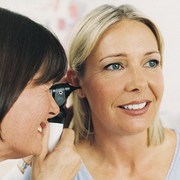Ear problems are a common complaint among travelers. Whether you are driving through a mountain pass or flying in an airplane, changes in altitude can make your ears feel plugged or like they need to pop. A nickname for this sensation is “airplane ear” because it is a common occurrence during the rapid changes in altitude and air pressure experienced during take-off and landing.
Air pressure in the ear
Airplane ear or the sensation of needing the ears to pop is the result of an imbalance in pressure from the air around you to the air inside the middle ear. Under normal conditions, the pressure inside the ear is approximately the same as the pressure in the surrounding environment. The body maintains this balanced pressure by letting air into or out of middle ear through the Eustachian tubes. These tubes are narrow passages about the size of a pencil lead that connect the middle ear to the back of the nose.
The air inside the ear is constantly being absorbed by the tissues in the ear. When we swallow, the muscles around the Eustachian tube open the passage and allow air to pass through to maintain the correct pressure to match the surrounding air. But if the Eustachian tube is swollen or blocked, such as from a cold or allergies, air is not able to pass through and the pressure becomes out of balance. In this case, the ear drum may become stretched or pulled tight as the higher pressure on one side pushes against it. When this happens, the eardrum is not able to vibrate correctly and sounds become muffled and the ear may feel “full”.
Causes of airplane ear
Another cause of an imbalance in pressure in the ear is a rapid change in altitude, as happens when an airplane takes off or lands. In this case, the Eustachian tube is not able to allow air to pass fast enough to keep the pressure balanced. During a normal flight, the air pressure inside the plane cabin is lower than the pressure at ground level. So immediately after takeoff, the pressure inside the ear is higher than the pressure in the surrounding air. It’s fairly easy for the Eustachian tubes to allow air to leave the ear, so there is seldom a problem popping the ears while in the air. The opposite is true during landing. The air pressure on the ground is higher than the pressure inside the ear, which means the Eustachian tubes need to quickly allow air to enter the ear.
Other situations that include a rapid change of pressure can also trigger the same kind of pressure imbalance in the ear, including rapid elevator rides in a tall building, driving in the mountains and scuba diving. Being slapped or hit on the ear can also cause a rapid change in pressure, which may happen to a water skier hitting the surface of the water at high speed.
Preventing airplane ear
The easiest way to avoid airplane ear is to help the Eustachian tubes move air into the ear, especially during landing. Here are some things to do during takeoff and landing to help your ears stay open:
• Encourage swallowing – Chewing gum or sucking on a hard candy will encourage you to swallow more often;
• Yawn – The motion of the jaw can help open the Eustachian tubes;
• Valsalva maneuver – Take a deep breath, pinch your nose shut and close your mouth, then gently force the air into the back of the throat, as though you are trying to blow your nose. This pressure can help push air into the Eustachian tubes and make the ears pop;
• Stay awake – If you are asleep during takeoff and landing you probably won’t swallow as often as needed to keep your ears open. Ask the flight attendant to wake you before landing if you plan to sleep during the flight;
• Nasal Spray – An over the counter decongestant spray used about 30 minutes before take-off and landing can help reduce any swelling around the Eustachian tubes to make sure they are open. Avoid overuse of these sprays because they can make congestion worse if taken over several days;
• Oral decongestants – Pills may be helpful if taken 30 minutes to an hour before a flight. Check with your doctor first to make sure oral decongestants are safe for you to use, especially if you have heart disease, a heart rhythm disorder, or high blood pressure;
• Allergy medication –If you have allergies, be sure to take your medication about an hour before the flight;
• Drink water – Dehydration can irritate the nasal passages and throat which can interfere with the function of the Eustachian tubes. Make sure you drink enough water to stay hydrated when traveling; and
• Avoid alcohol and caffeine – These drinks can contribute to dehydration.
Airplane ear and kids
If you are traveling with small children try these tips to help them avoid airplane ear:
• Encourage swallowing – Give a baby or toddler something to drink during take-off and landing. A pacifier may also help. Children older than age 4 can try chewing gum, drinking through a straw, or blowing bubbles through a straw; and
• Plan ahead – If you are concerned that your child may still develop airplane ear, ask your pediatrician about ear drops for your child that contain a pain reliever and numbing agent for the flight.
Treating airplane ear
In most cases, airplane ear will resolve itself without a few hours. If discomfort in the ear, fullness, or muffled hearing lasts more than a few hours, or if you experience severe symptoms, call your doctor. You may receive medications to help the Eustachian tubes work better. In rare instances, the doctor may need to make a small hole in your eardrum to equalize the pressure and release any fluid that may have accumulated inside the middle ear.
Sources:
American Academy of Otolaryngology – Head and Neck Surgery
Mayo Clinic




Add a Comment1 Comments
THere is a device called Otovent that works for things like this...
December 23, 2009 - 6:02amThis Comment